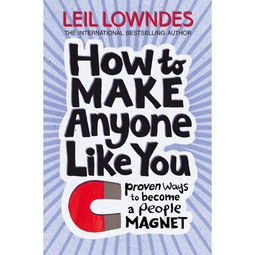
How to Make an Insect Bite Stop Itching
Dealing with an insect bite can be quite uncomfortable, especially when it starts to itch. The itching can be relentless, making it hard to concentrate on daily activities. But fear not, as there are several effective methods to alleviate the itching and discomfort. In this article, we will explore various remedies and techniques to help you make an insect bite stop itching.
Understanding the Cause of Itching

Before diving into the remedies, it’s essential to understand why insect bites cause itching. When an insect bites, it injects its saliva into your skin. This saliva contains enzymes and other substances that help the insect digest your blood. However, these substances can also trigger an immune response in your body, leading to inflammation and itching.
Immediate Relief Techniques

When you get bitten by an insect, the first step is to try and soothe the area immediately. Here are some quick techniques to help alleviate the itching:
-
Wash the bite with soap and water to clean the area and prevent infection.
-
Apply a cold compress to the bite. Cold temperatures can numb the area and reduce inflammation.
-
Press a bandage or cloth against the bite to reduce swelling and prevent scratching.
Home Remedies for Itching Relief

There are several home remedies that can help alleviate the itching and discomfort caused by an insect bite. Here are some popular options:
-
Aloe Vera: Aloe vera has cooling properties that can soothe the skin and reduce inflammation. Simply apply fresh aloe vera gel to the bite.
-
Tea Tree Oil: Tea tree oil has antibacterial and antifungal properties that can help prevent infection and reduce inflammation. Dilute a few drops of tea tree oil with a carrier oil (such as coconut oil) before applying it to the bite.
-
Baking Soda Paste: Mix baking soda with water to create a paste. Apply the paste to the bite and let it dry before rinsing off with water.
-
Apple Cider Vinegar: Dilute apple cider vinegar with water and apply it to the bite with a cotton ball. The vinegar can help neutralize the pH of the skin and reduce itching.
-
Hydrocortisone Cream: Over-the-counter hydrocortisone cream can help reduce inflammation and itching. Apply the cream to the bite as directed on the label.
Topical Treatments and Medications
In addition to home remedies, there are various topical treatments and medications available to help alleviate the itching:
-
Antihistamines: Antihistamines can help reduce the immune response that causes itching. Over-the-counter antihistamines like diphenhydramine (Benadryl) can be taken orally or applied topically.
-
Calamine Lotion: Calamine lotion can help soothe the skin and reduce itching. Apply the lotion to the bite as needed.
-
Antiseptic Ointments: Antiseptic ointments, such as Neosporin, can help prevent infection and reduce inflammation. Apply the ointment to the bite as directed on the label.
Preventing Future Insect Bites
Preventing future insect bites is crucial, especially if you are prone to allergic reactions or severe itching. Here are some tips to help you avoid getting bitten:
-
Wear long sleeves and pants when hiking or spending time in areas with high insect activity.
-
Use insect repellents containing DEET or picaridin to deter insects.
-
Keep your home clean and free of clutter, as insects often thrive in dirty environments.
-
Check your clothing and skin for insects before going to bed.
When to Seek Medical Attention
In most cases, insect bites are harmless and can be treated at home. However, there are instances when you should seek medical attention:
-
If the bite becomes extremely swollen, red, or hot to the touch, it may be infected.
-
If you experience difficulty breathing





